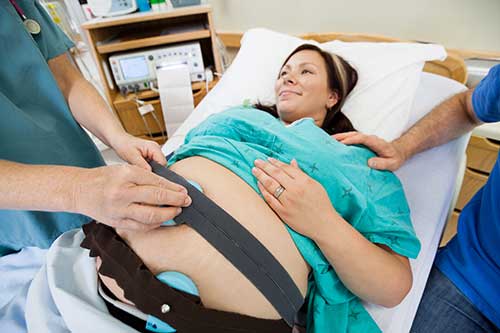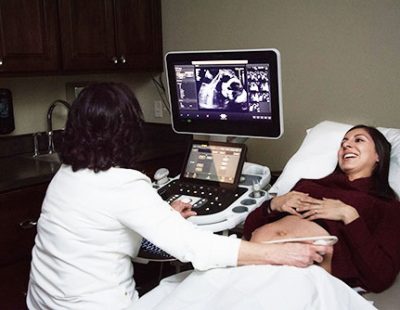Prenatal Care
One of the most important parts of a healthy pregnancy is prenatal care. From the first visit through each trimester of the pregnancy, we provide physical exams, testing and monitoring to maintain a healthy pregnancy for both the mother and baby.

Landmark Visits
During your pregnancy, we will schedule you for several appointments. Some of these visits, we call “landmark visits,” are key visits that provide your medical provider information and check your pregnancy progress.

Nutrition While Pregnant
Adequate nutrition in a woman’s health is essential to her overall well-being. Women in each stage of life have specific nutritional needs that need to be satisfied for optimal physical health.

“What Medications can I take?”
See a list of safe medications you can take while pregnant for conditions like nausea, heartburn, gas, sore throats, and more.

Vaccinations for Pregnant Women
It is common to wonder what vaccinations are necessary and which ones should be avoided when pregnant. The Immunization Action Coalition (IAC) along with the American College of Obstetricians and Gynecologists (ACOG) have created a chart that we follow as a guideline.
See Guideline Charts (PDF)

Morning Sickness
Morning sickness is common in pregnancy and while it is different for each woman and each pregnancy, there are similarities and recommendations to ease the discomfort.

Hydration Therapy
In situations where the pregnant mother suffers from severe morning sickness, it may be necessary for intravenous hydration to replenish fluids and electrolytes. We provide in-house hydration services in the comfort of our office that can save the cost of a trip to the hospital.

Genetic Screening
An important aspect of prenatal care is genetic screening which is an evaluation of both maternal blood testing and ultrasound imagery. With this genetic screening, we can identify normal and abnormal chromosomes.

Gestational Diabetes
Gestational diabetes is similar to other forms of diabetes but it develops during pregnancy. With diabetes, the body does not properly process food into energy resulting in high glucose (sugar) levels. If untreated, complications can develop for both the mother and baby.

Fetal Kick Count
Referred to as a “fetal kick count” or a “fetal movement count,” this is a simple way to check the health of your unborn baby. Most pregnant women are able to feel their baby’s movement by about 20 weeks of gestation.

Non-Stress Tests
A fetal non-stress test, performed after 28 weeks of gestation, is a test that measures the fetal heart rate without applying stress to the fetus. This testing is accomplished by attaching two belts to the mother’s abdomen to monitor the contractions and the fetal heart rate.

High Risk Pregnancy
Some women may potentially have complications during pregnancy that could affect the health and/or life of the mother, baby or both. Such complications are considered “High Risk” and require specialized care.

Ultrasound
As part of prenatal testing, we provide ultrasound services to test the development of the growing fetus. The first ultrasound, called the dating ultrasound, helps establish the due date of the baby. Depending on the progress of the pregnancy, other ultrasounds may also be conducted. At about 30 – 32 weeks of pregnancy, you may also consider a 3D/4D ultrasound.
